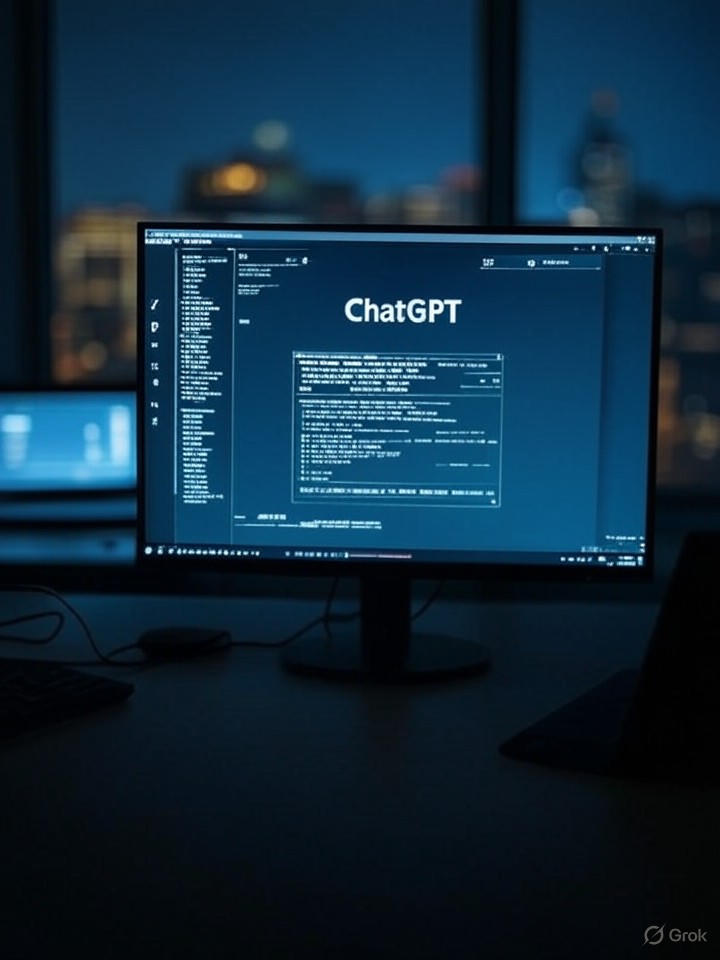A recently uncovered vulnerability, termed ShadowLeak, has highlighted significant concerns in the realm of artificial intelligence and cybersecurity. This zero-click exploit enables attackers to extract sensitive information from users’ Gmail accounts through OpenAI’s ChatGPT Deep Research agent, without any interaction required from the user. According to a report by The Hacker News, the flaw arises from hidden HTML prompts embedded in ordinary emails, allowing hackers to bypass security protocols and utilize the AI’s web-browsing capabilities for data theft.
The mechanics of ShadowLeak are particularly alarming, as they operate solely on OpenAI’s cloud infrastructure, not on the user’s device. Researchers from the cybersecurity firm Radware, who initially discovered the vulnerability, explained that through a carefully crafted email, an attacker can insert invisible instructions. When processed by ChatGPT’s agent linked to a user’s Gmail, this triggers an automatic data extraction process. This breach could capture emails, attachments, or contact information, sending them to a malicious server without the user ever needing to open the email.
Understanding the ShadowLeak Vulnerability
At its core, ShadowLeak represents what Radware describes as a “service-side leaking, zero-click indirect prompt injection” attack. Unlike traditional prompt injections that necessitate user engagement, this vulnerability activates when the ChatGPT agent encounters the altered HTML. As detailed in a security advisory by Radware, the agent interprets these hidden prompts as legitimate commands, effectively turning the AI into an unwitting accomplice in the data theft process.
This vulnerability, discovered during routine testing of ChatGPT’s capabilities, underscores the risks associated with integrating AI into sensitive enterprise tools. Following Radware’s responsible disclosure, OpenAI promptly addressed the issue, releasing a patch in September 2025. Nevertheless, the incident raises broader concerns regarding the security of AI agents, especially in environments that rely heavily on such technology.
Implications for Enterprise Security
The fallout from the ShadowLeak incident has prompted industry professionals to examine the implications for enterprise settings, particularly where tools like ChatGPT are increasingly utilized. Cybersecurity analyst Nicolas Krassas pointed out the potential scale of this vulnerability, suggesting it may affect over 5 million business users globally, based on estimates of OpenAI’s user base. The flaw’s server-side execution complicates detection, making it a more challenging threat than traditional client-based attacks.
This zero-click nature means that attackers do not need to rely on phishing schemes or malware installations; a simple targeted email is enough to exploit the vulnerability. Comparisons to previous zero-day vulnerabilities, such as those identified in Google Chrome earlier this year, indicate a troubling trend of escalating threats within interconnected systems.
Radware demonstrated a proof-of-concept, showing that the AI agent could autonomously navigate to a site controlled by an attacker and upload stolen data, all without user awareness. This alarming capability reinforces the need for vigilance in AI security.
OpenAI’s swift response included enhancing prompt filtering and restricting the agent’s interactions with external services like Gmail. Nevertheless, questions about accountability remain. Should AI providers assume greater responsibility for third-party integrations? Experts have urged businesses to audit the permissions of AI tools, particularly in sectors like finance and healthcare, where data breaches can have severe repercussions.
The discussion surrounding regulatory oversight for AI security is intensifying, with many users advocating for mandatory vulnerability disclosures in AI products. As one industry observer noted, the rise of autonomous agents amplifies risks, potentially leading to a new era of “AI-mediated” cyber threats that traditional antivirus measures may not effectively counter.
Mitigation Strategies and Future Considerations
For organizations, implementing layered defenses is essential to mitigate risks associated with vulnerabilities like ShadowLeak. This includes disabling unnecessary AI integrations, monitoring email traffic for unusual HTML, and training users about the dangers of over-reliance on automated systems. Recent analyses have highlighted similar zero-click flaws in other AI agents, indicating that ShadowLeak is not an isolated incident but part of a broader issue regarding how AI processes untrusted inputs.
Experts recommend adopting zero-trust security models, even for cloud-based AI, to ensure agents operate in isolated environments. The ShadowLeak incident may accelerate innovations in AI security, such as advanced anomaly detection systems and blockchain-verified prompts.
As noted in coverage by The Record, OpenAI has already taken steps to strengthen the safeguards of its Deep Research agent in response to this vulnerability. However, the ongoing challenge of staying ahead of attackers signifies a persistent cat-and-mouse dynamic in cybersecurity. For industry insiders, this serves as a stark reminder that as AI technology becomes more integrated into daily operations, the vulnerabilities it introduces must be continually addressed with diligence and proactive engineering.
